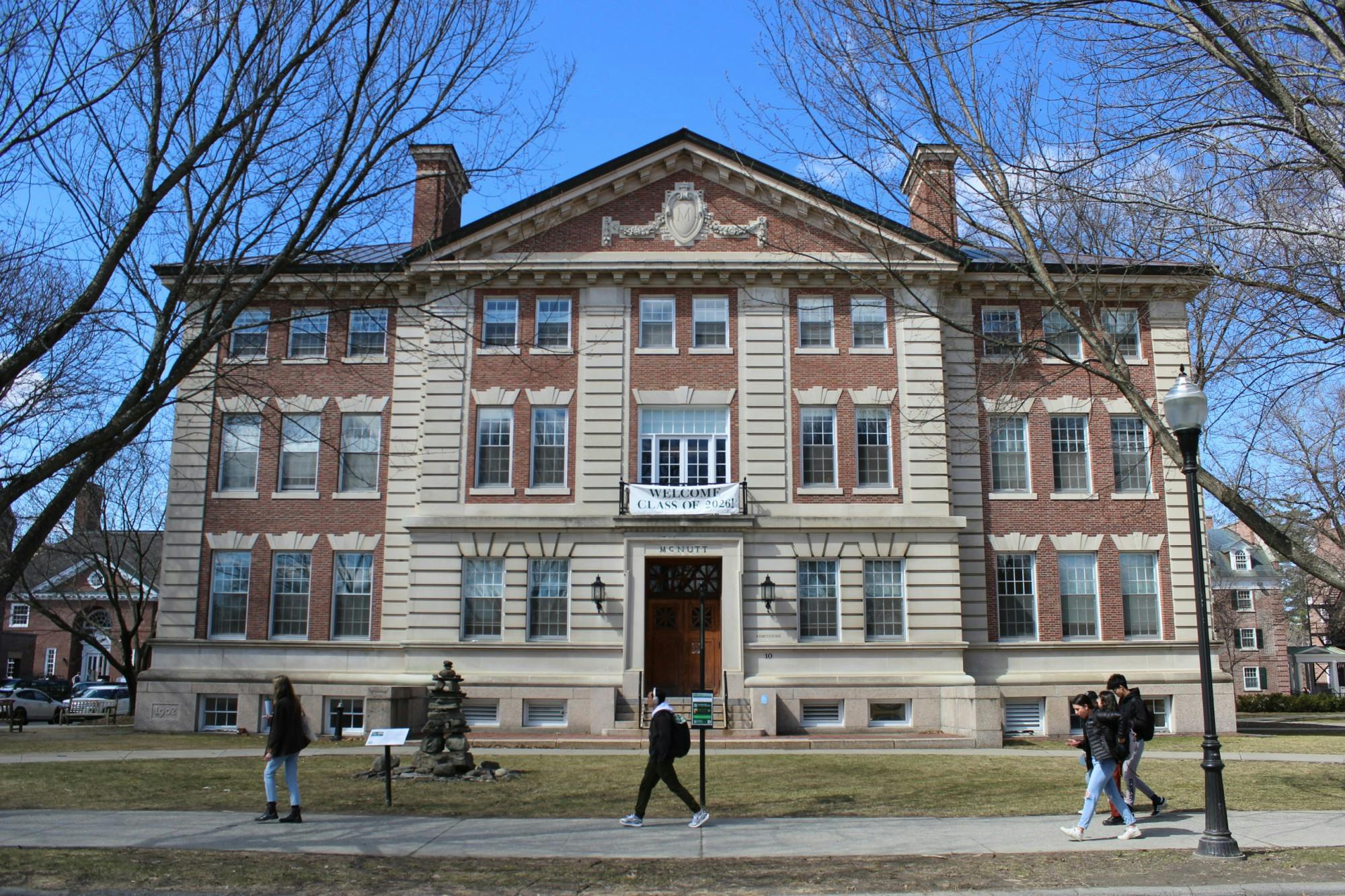The College welcomed 1,207 regular decision applicants to the Class of 2026, joining the 560 students who were admitted via early decision in December, according to an announcement from the admissions office. In total, 1,767 applicants were selected from a pool of 28,336 applications in total, for an acceptance rate of 6.24% –– just above last year’s record low of 6.17%.
This year saw 21 fewer applications than last year’s number, which marked a record high of 28,357 applicants and a 33% increase from 2020. According to College spokesperson Diana Lawrence, 27 students from the Class of 2025 chose to take gap years and will join the Class of 2026.
Financial aid for the Class of 2026 also observed two record highs: 63% of admitted students applied for need-based financial aid with an average projected scholarship of $61,000. In addition, 19% of admitted students living within the U.S. qualify for Pell Grants.
In January, the College expanded its need-blind admissions policy to include international students. Fifteen percent of students in the Class of 2026 are international students, which matches the percentage of accepted international students in the Class of 2025.
Several students admitted to the Class of 2026 shared their reactions to their Dartmouth acceptance letters, with some having mixed feelings throughout the college application process due the pandemic and other logistical factors — such as the decision to extend the test-optional admissions policy to the Class of 2026 in February 2021.
Admitted student Mason King said that when he opened his Dartmouth acceptance letter while surrounded by his family, none of them could contain their excitement.
“When I read the first word, we all just jumped up and we started yelling and screaming, and it was a very exciting moment just to know that you’ve put so much time and effort into these applications, and to see payoff has been really good,” King said.
Admitted student Simone Feinblum said that she felt “surprised” when she opened her acceptance letter but also “very happy and excited.” She added that Dartmouth’s decision to make applications test-optional last year made the application process seem particularly “competitive” considering that applicants would put more effort into other aspects of their application.
“There are going to be people who have excellent essays and extracurriculars and stuff like that, so you really need to put as much effort into your scores and your GPA as other stuff [on the application] that you [might not] find as important,” Feinblum said.
Feinblum also said that the pandemic influenced her college application process because it was difficult to travel and tour schools in person. She added that visiting her sister at Dartmouth prior to the pandemic drew her to apply and that she felt less interested in applying to other schools she did not visit.
“[The pandemic] definitely affected my application process in that I was more inclined to consider the schools more heavily that I was familiar with, so then towards the end of the pandemic, I went to schools within driving distance,” Feinblum said. “But the schools far from where I was, I never really thought about going to, [since] I’ve never been there.”
Admitted student Ramina Askarova said that she believes that the pandemic may have had a silver lining for international students applying to Dartmouth, as it granted greater access to virtual forms of communication. For example, she was able to participate in a Dartmouth alumni interview from her home in Kazakhstan.
Askarova said she appreciated her interviewer’s stories about his family ties to Dartmouth and his emphasis on Dartmouth’s community values.
“I think that Dartmouth is a college that values this kind of family spirit and really caring about each other,” she said. “...[My interviewer] actually told me about many stories related to Dartmouth and to his family –– because I guess his wife and kids also went to Dartmouth –– and I learned stories about Dartmouth that made me [want to go there].”
King said that he felt inspired to apply to Dartmouth because it “checks a lot of boxes in terms of who I am as a person.” Specifically, he said he was drawn to the College’s academic programs and easy access to nature and outdoor recreation.
“Having things like the [First-Year] Trips program and sophomore summer, where students are kind of surrounded by [nature] consistently and can go canoe, or go hiking, or go skiing or go mountain biking, connects with me pretty personally,” he said. “And then having such a high academic standard of excellence –– it felt perfect to me.”
Admitted students have until May 2 to accept or decline their admission.
Dean of Admissions Lee Coffin declined to comment on this admissions cycle. Lawrence wrote in an email that Coffin will not have “any additional news to report until matriculation.
Kristin Chapman ’24 is an English major and Spanish minor from Rye, New York. She currently serves as the editor-in-chief and previously wrote and edited for the News section. In her free time, she enjoys reading books, running, hiking and doing yoga.




